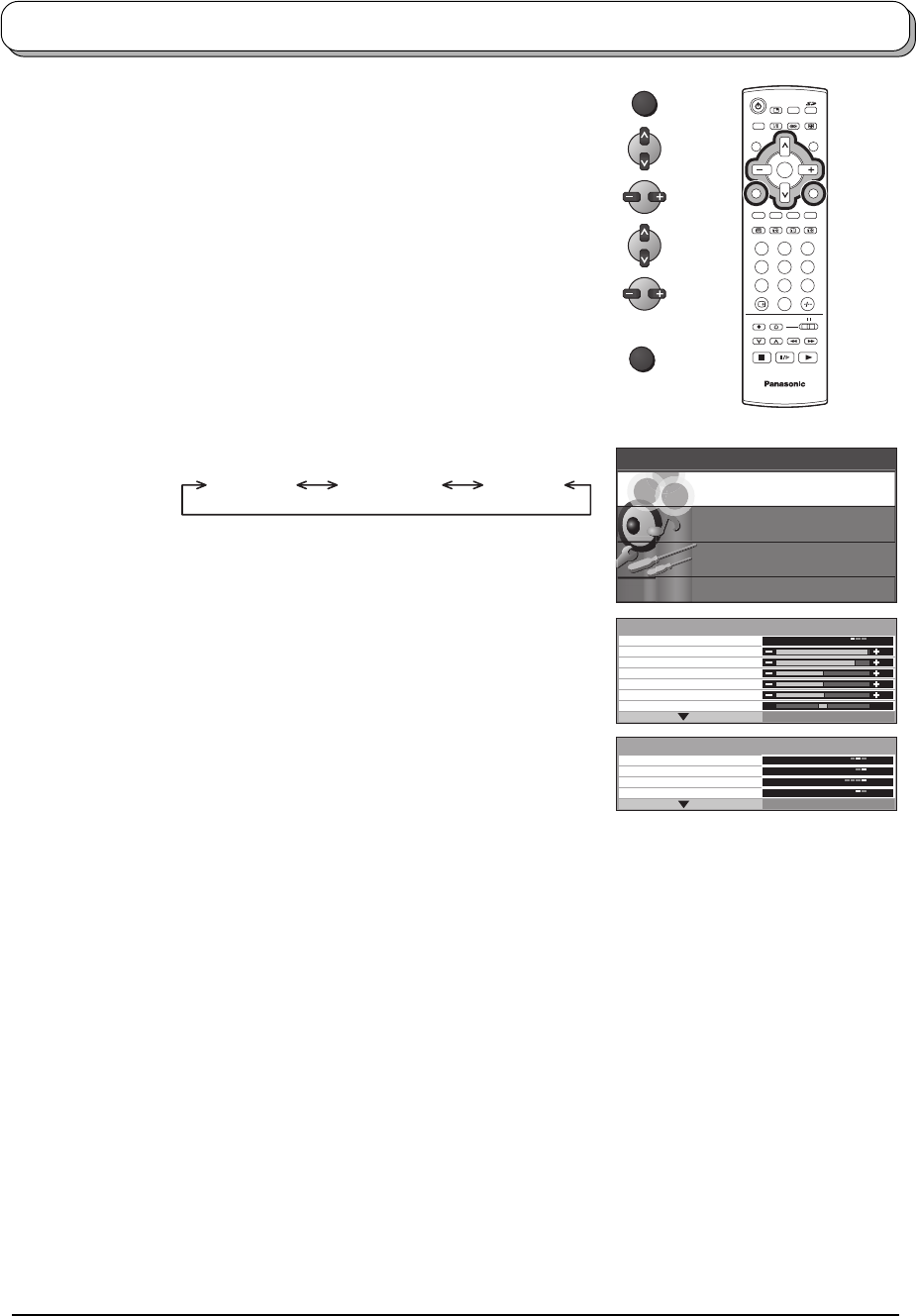
18
MENU
1 2 3
4 6
7 8 9
0
TV
OK
5
MAIN MENU
PICTURE
SETUP
SOUND
LANGUAGE
PICTURE
Press the MENU button.
Move to choose PICTURE.
Access PICTURE.
Move to choose menu option.
Adjust chosen option or access chosen menu.
Press the TV/AV button at any time to go back to watching TV.
MENU
NTSC-TINT (TINT)
C.TEMP
AI
D.PNR
MPEG NR
BACKLIGHT, CONTRAST, BRIGHTNESS, COLOUR, SHARPNESS
TV/AV
CINEMADYNAMIC STANDARD
MENU
BACKLIGHT
CONTRAST
BRIGHTNESS
COLOUR
SHARPNESS
NTSC-TINT
PICTURE
C. TEMP
AI
STANDARD
ON
D. PNR
MPEG NR
AUTO
OFF
PICTURE
DYNAMIC
Note:
By pressing the N button on the remote control while the PICTURE menu is displayed, the selected menu will be
changed to the Normal mode.
Normalization will not occur if the menu is not displayed when the N button is pressed.
The Normal mode is the factory preset condition. Returning to this original condition is called “Normalization”.
MENU mode will be memorized for each TV, AV1, AV2,
AV3 and AV4 mode.
You can change the level of each Item (BACKLIGHT,
CONTRAST, BRIGHTNESS, COLOUR, SHARPNESS,
NTSC-TINT, C.TEMP, AI, D.PNR and MPEG NR) for
each MENU (DYNAMIC, STANDARD and CINEMA)
according to your personal preference.
Increase or decrease the levels of these options
according to your personal preference.
The picture hue can be adjusted to suit your taste.
Notes:
• When the TV is receiving NTSC signals, NTSC-TINT
is displayed and level adjustment is possible.
• When the TV is receiving YUV (60Hz) signals, TINT is displayed and level adjustment is
possible.
Allows you to set the overall colour tone of the picture. Choose from COOL, STANDARD and
WARM.
Automatically analyses the incoming picture and processes it to give improved contrast and
optimum depth of field.
Automatically reduces unwanted picture noise.
Reduces MPEG noise.
This function is effective in reducing the digital block noise when viewing DVD, VCD or digital
broadcasting. The effect will be changed based on the scene and image.
MPEG Compression technology of the image signal adopted by DVD, VCD or digital
broadcasting.
Example: TX-26LX1M, TX-32LX1M


















